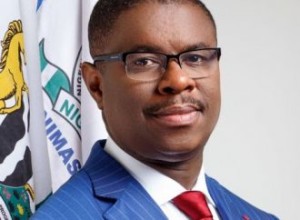
Nigeria has lost the election into the “Category C” of the International Maritime Organisation (IMO) Council seat. IMO is the United Nations specialized agency with responsibility for the safety and security of shipping and the prevention of marine pollution by ships. Its 40-member Council is the executive organ that is responsible, under the Assembly, for supervising the work of the Organization. Between sessions of the Assembly, the Council performs all the functions of the Assembly, except that of making recommendations to governments on maritime safety and pollution prevention. The Council is categorised into A,B,C countries. Category A comprises of 10 countries with the largest interest in providing international shipping services. Category B is made up of another 10 countries with the largest interest in international seaborne trade, and Category C comprises 20 nations not elected under (a) or (b) above, but have special interests in maritime transport or navigation and whose election to the Council will ensure the representation of all major geographic areas of the world. Nigeria is eligible to contest in the elections into category C. The last time the country got elected into the Council was in 2009 during the administration of Dr. Ade Dosunmu after its initial election in 2000.
When the Minister of Transportation, Rotimi Amaechi announced that the President had granted approval for Nigeria to seek re-election into the Council, the industry received the news with mixed feelings. Whilst some sections believed it would further stamp Nigeria as the regional hub of the maritime industry in West Africa, others held it was a waste of time and resources considering the many challenges bedevilling our maritime industry. Now the elections have been conducted and Nigeria lost out. Losing the election is not as much of a problem as the events and issues characterising the loss. There are reports that the country spent about N300 million in prosecuting this election, although the DG of NIMASA puts the figure at N100 million, yet the right and appropriate measures were not put in place to ensure victory. That the country has won the election in the past means that it is possible with the right actions. The voting countries would be willing to support any country that has a clear direction for its maritime sector with attendant benefits to the international maritime industry. That direction we do not currently seem to possess.
The Director-General of NIMASA, Dakuku Peterside, has attributed the failure to late preparation, the economic situation of the country and the government bureaucracy. Even that is an indictment on our planning as a nation. The recession in the country was felt by virtually every sector and segment of the country, and the prosecutors of the campaign should have counted the cost before embarking on the mission. Similarly, government bureaucracy is not a new characteristic of governance; it is been there since time immemorial. It should have been factored into the planning from the onset. The bid appears to be one designed to fail from the outset considering the state of our maritime industry, timing, and the intrigues surrounding it. Nevertheless, beyond the cry over spilled milk we believe there are more pressing issues facing our maritime industry that require urgent attention. In actual fact, the money that was spent on the election into the Council could have been dedicated to solving the many challenges facing the industry. The Cabotage Vessel Financing Fund (CVFF), worth N100 billion domiciled with NIMASA is still not being disbursed while the local shipping industry is gradually dying. The CVFF is only a component of the overall Cabotage Act 2003, which has not been fully implemented. The Act is primarily designed to build capacity for local ship operators to partake in the Cabotage trade which is currently dominated by foreigners. The full implementation of this Act would ensure the growth of ship building, repairs and maintenance sector of our maritime industry and ultimately create jobs for the unemployed youths. Piracy still remains a major challenge in Nigeria with 87 incidents reported to the IMB Piracy Reporting Centre in the first half of the year. Even the DG of NIMASA affirmed that increase in pirates attack in the nation’s territorial waters and the general impression that Nigeria was not doing enough to tackle the challenge could have been a major setback for the country’s re-election bid. This further shows that until some fundamental issues are addressed, seeking election into IMO Council should be a pending desire. We cannot do things the same way and expect a different result.
We believe that dealing with the aforementioned and other challenges will significantly improve our maritime industry and place us in good stead for subsequent attempts. Charity begins at home they say; let us put our house in order before we pursue global recognition and acceptance.
Copyright Ships & Ports Ltd. Permission to use quotations from this article is granted subject to appropriate credit given to www.shipsandports.com.ng as the source.